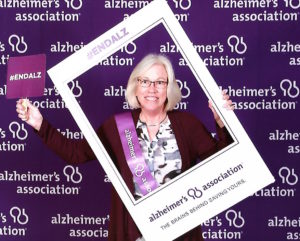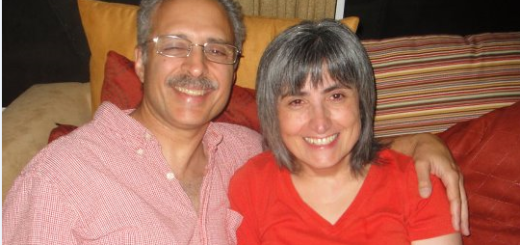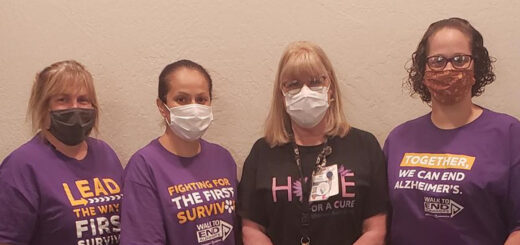Sacramento Walk Participant Shares Her Story
 “My Father was diagnosed with Alzheimer’s disease in the 1980’s at age 64. Very few people talked about Alzheimer’s disease back then. It was devastating for our family, especially my mom who was his primary caregiver.”
“My Father was diagnosed with Alzheimer’s disease in the 1980’s at age 64. Very few people talked about Alzheimer’s disease back then. It was devastating for our family, especially my mom who was his primary caregiver.”
Ann will be participating in the Sacramento Walk to End Alzheimer’s this Saturday. Read her story below.
Why did you decide to get involved with Walk?
I see how heartbreaking this disease is and I have an obligation to do my part. My dad had early onset Alzheimer’s, and I worry about myself, my 5 siblings, and our kids. My siblings and I are approaching the age my dad was when he was diagnosed. We need to do more and increase research.
I started to volunteer with the Alzheimer’s Association when I retired. I have been very impressed with all that they offer, especially for caregivers, from the support groups to the helpline. A lot of the time caregivers are homebound and their social life is greatly diminished because of their loved ones. People can be so consumed with caregiving that they need this specialized outreach.
Tell us about your dad.
My father was both mentally and physically active; he seemed to do everything right. He played tennis and did crossword puzzles. It was shocking to see him develop this disease.
He was a Pulitzer Prize winning journalist. When he was first diagnosed he was a couple of months away from becoming president of a journalism leadership organization. Rather then take the position he decided to announce his retirement and his diagnosis of Alzheimer’s. This was an incredibly brave thing to do, given the stigma around dementia at the time. The New York Time wrote about his announcement.
My father had a very long and slow decline. He lived twelve years after his diagnosis. As his disease progressed he was no longer the confident man I grew up knowing, and it was difficult to hold a conversation with him. I began to grieve for my father long before his death.
What have you learned from this experience?
This was such an emotional time for my family. There weren’t the resources and help that are available now. People are more open today, and as you talk about it and participate in the Walk you realize the magnitude of this disease and the people who have been affected.
Helpful information related to this post:

















